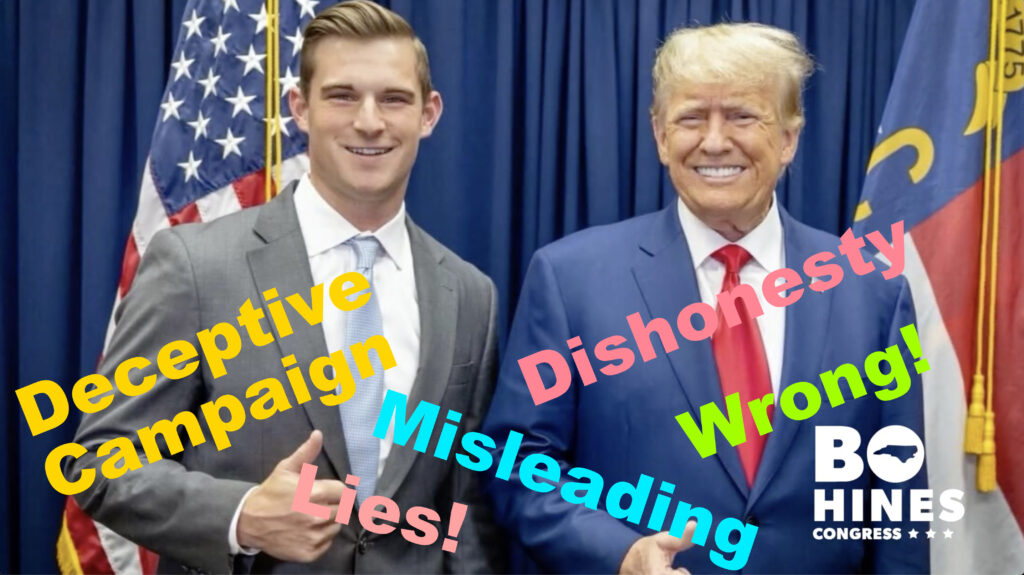
In the world of politics, gaining the endorsement of a prominent figure can be a game-changer for a candidate. It can boost their credibility, attract more supporters, and ultimately increase their chances of winning an election. However, when a candidate resorts to deception to make it seem like they have secured an endorsement they haven’t, it raises serious questions about their integrity and suitability for public office. Bo Hines, a candidate running for North Carolina’s 6th Congressional District, recently found himself embroiled in controversy for attempting to make voters believe that former President Donald Trump was endorsing him. Let’s delve into the details of this deceptive tactic and its potential consequences.
Bo Hines, a Republican candidate running for the 6th Congressional District of North Carolina, recently faced allegations of attempting to deceive voters by making it appear as though he had secured the endorsement of former President Donald Trump. The controversy erupted when Hines began circulating campaign materials and social media posts that strongly implied Trump’s endorsement. However, upon closer examination, it became evident that Trump had not endorsed Hines for the 2024 election in North Carolina District 6.
Hines’ campaign materials and social media posts featured images of him alongside former President Trump, giving the impression that the two had a close political relationship. These materials included images with captions such as “With President Trump,” “Trump’s Choice for NC District 6,” and “Endorsed by President Trump.” These captions, combined with the visual imagery, created a strong impression that Trump had officially endorsed Hines for the congressional seat. Watch his video on Youtube
Former President Donald Trump is known for his vocal endorsements of political candidates, and when he endorses someone, it typically comes with an official statement or tweet. Trump’s endorsements carry weight in Republican circles, and candidates who receive his endorsement often prominently display it in their campaigns. However, in Hines’ case, there was no endorsement from Trump, no statement from the former president, and no tweet indicating support for Hines’ candidacy for Congress.
Deceptive campaign tactics like the ones employed by Bo Hines can have serious consequences in the world of politics. Firstly, they erode the trust that voters place in candidates and the political process. When voters believe they are being misled, it undermines their faith in the democratic system and can lead to disengagement from politics altogether.
Secondly, deceptive campaign practices can damage a candidate’s reputation and credibility. In this case, Bo Hines’ attempt to make it seem as though he had secured Trump’s endorsement has called into question his honesty and integrity. This can be especially damaging in an era when transparency and authenticity are highly valued by voters.
Finally, deceptive campaign tactics can also lead to legal consequences. In some cases, misleading campaign materials may violate election laws and regulations, potentially resulting in fines or other penalties for the candidate and their campaign team.
Bo Hines’ deceptive attempt to make voters believe that he had secured former President Donald Trump’s endorsement for the 6th Congressional District of North Carolina raises serious ethical and political questions. Deceptive campaign practices not only erode trust in the political process but also damage a candidate’s reputation and credibility. In a democracy, voters deserve honesty and transparency from their candidates, and any attempt to mislead them should be met with scrutiny and condemnation. As the election season unfolds, it remains to be seen how this controversy will impact Bo Hines’ candidacy and whether voters will hold him accountable for his actions.